
Public Health Authority
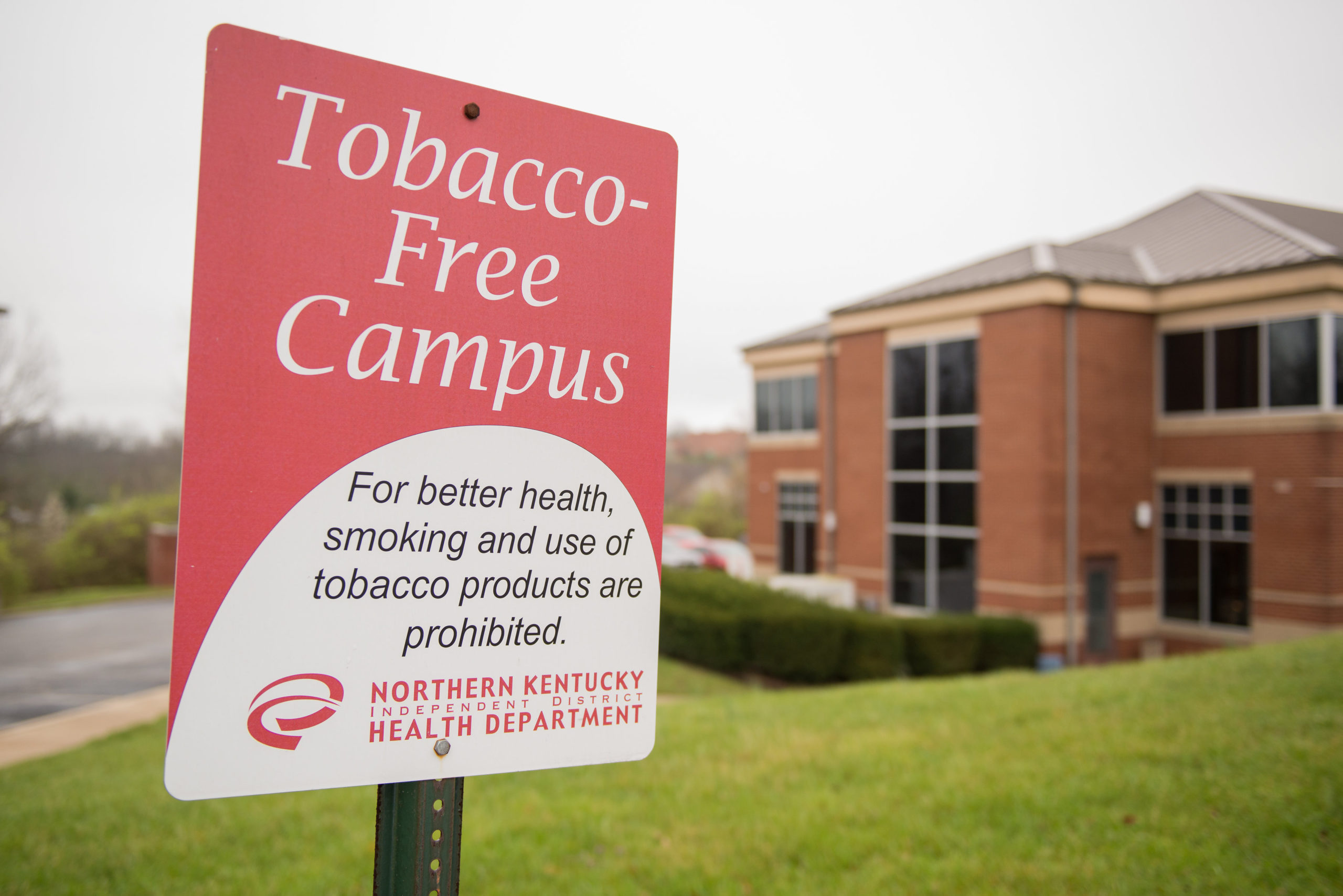
The authority to act to protect and promote the public’s health has emerged over the course of our Nation’s history, and has enabled many of modern public health’s greatest achievements. Today, public health agencies use their authority to promote health, prevent the spread of infectious disease, protect against environmental hazards, advance equity and assure local public health infrastructure and health services. During declared emergencies, state and federal authorities have broader powers to act to assist governments, suspend or modify legal requirements, pass and enforce law and expend funds for the health, safety and welfare of society. Recently, some states have moved to limit public health powers. Such efforts pose a mounting challenge for public health’s response to COVID-19 and future threats.
Themes
- Public health emergency declaration: On January 31, 2020, the first nationwide public health emergency was declared in response to COVID-19. Emergency declarations at state and federal levels trigger authorities and resources unavailable in non-emergencies.
- Scope of public health authority: Through the police powers of the state granted under the 10th Amendment of the U.S. Constitution, public health can pass and enforce regulation for the health, safety and welfare of society. During COVID-19, these actions included isolation and quarantine requirements, vaccination mandates, revised standards for licensure of medical professionals, and other public health emergency response efforts.
- Threats to emergency powers: Recently, some states have moved to limit emergency powers and public health authority in response to perceived government overreach and outrage over handling of the pandemic. Such laws seek to prohibit mask wearing, ban the use of quarantine, block employer vaccine mandates, give legislatures unilateral power to stop public health actions, and more. These threats to emergency powers may compromise public health’s ability to respond effectively to COVID-19, health equity and future public health threats.
Equity & Systems
New laws to limit emergency powers and public health authority are concerning given their potential to create and perpetuate inequities. For example, preemption which may prevent communities from acting to deal with their own populations and relevant issues as needed. We can better understand the influence of policy on health and equity through a “Health and Equity in All Policies” approach to policy-making. Such approaches hold promise for centering equity in public policy discourse and advocacy, and transforming policies and systems for equity.
Featured Resources

This article examines how the nation may less prepared for the next pandemic than it was for COVID-19, partly through the story of a family physician in Washington state. It maps where state laws newly limit public health powers, reviews the history of public health authority, and provides county health department survey results with concerns […]

This report explores the history of public health authority, including longstanding and recent efforts to undermine it. It provides arguments to counter proposed legislation as a resource for public health officials, advocates, and policymakers.

This curriculum provides law training for state and local officials on how to balance public health authority against individual liberty using the U.S. constitution as a framework. It includes an overview of laws that affect how government can respond to health crises while advancing health equity.
Related Resources
Search for resources in Public Health Authority


Las Cinco Dimensiones de la Estrategia Adentro-Afuera: Una Guía para que Salud Pública y los Movimientos Sociales desarrollen Alianzas Poderosas

La Caja de Herramientas de las Cinco Dimensiones: Recursos para trabajar con Las Cinco Dimensiones de la Estrategia Adentro-Afuera
Making the Case for Public Health: A Framing and Communication Webinar
State Efforts to Transform Public Health and Protect the Authority to Act: Alliance February Meeting
Community-based Coalitions and Public Health: Alliance for Disease Prevention and Response Discussion
Building Power with Community Partnerships: Alliance for the Public’s Health August Meeting

Building a Network for Public Health and Equity: Vaccination

Building a Network for Public Health and Equity: Public Health Workforce Development and Diversity

Building a Network for Public Health and Equity: Public Health Authority

Building a Network for Public Health and Equity: Disease Tracking and Surveillance

Building a Network for Public Health and Equity: Community Assessment and Engagement

Building a Network for Public Health and Equity: Building Trust

Letters to Congress and Federal Agencies

Advocacy For Public Health: Testimony, Comments and Briefs

A Public Health Amicus Brief Highlights the Harm if the Supreme Court Invalidates a Key Provision of the Affordable Care Act

American Public Health Association: Robert F. Kennedy Jr. as Secretary of the U.S. Department of Health and Human Services

Veterans, Teachers, Public Health Professionals, Consumer Advocates, and Watchdog Groups File Suit Challenging the DOGE’s Secret Operations

American Public Health Association: Withdrawal of the United States From World Health Organization (WHO)

American Public Health Association: Advocacy Letter H.R. 21/S. 6.

A Direct Attack on Every American’s Health and Safety: Statement From ‘For Our Health’ in Response to Actions Taken at Federal Health Agencies

APHA Announces New Initiative For Our Health to Defend Science and Safeguard the Public’s Health

Judge Issues Temporary Restraining Order on OMB Freeze

Nonprofits, Public Health Leaders, Small Businesses File Suit to Block OMB Attempt to Halt Essential Services
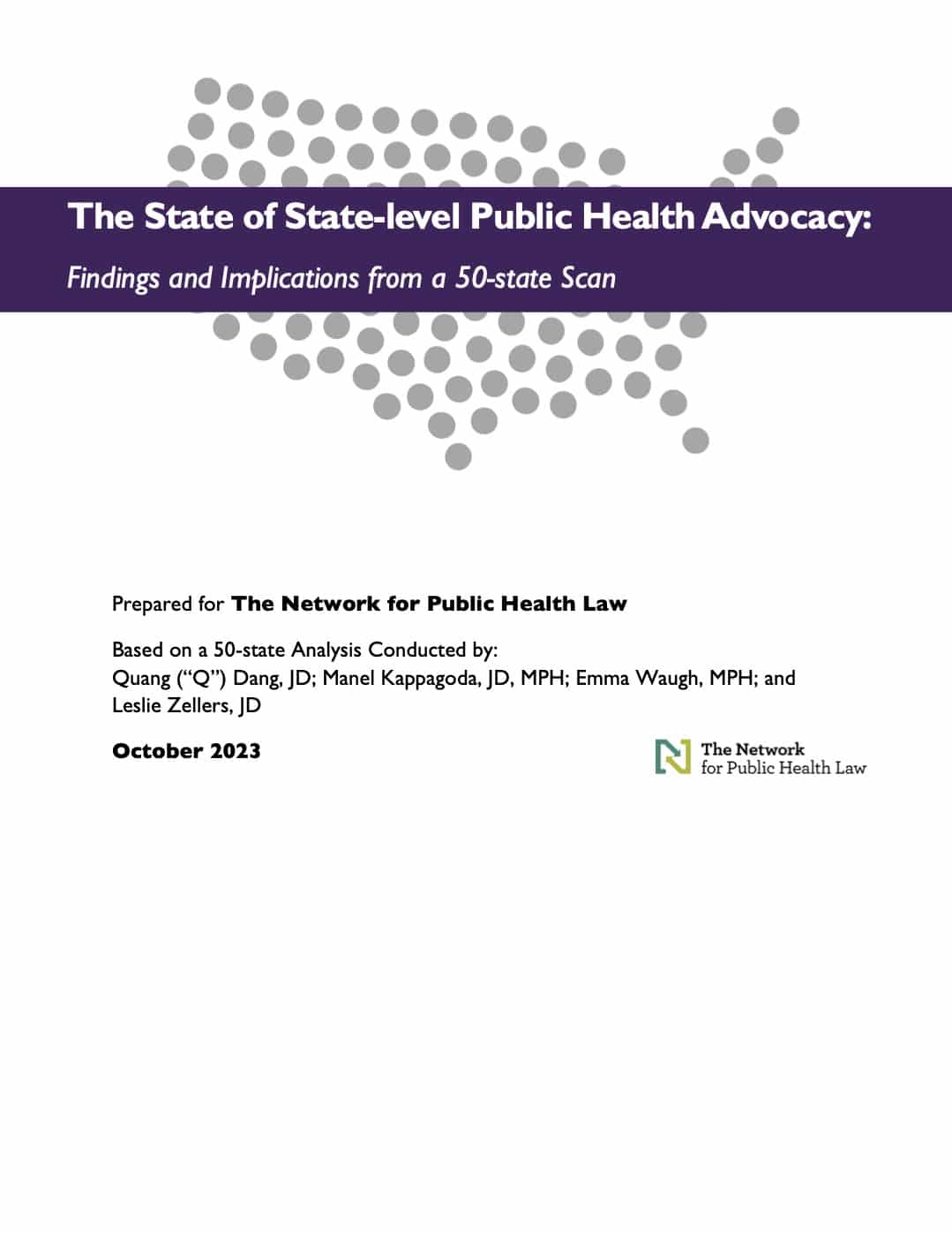
The State of State-Level Public Health Advocacy: Findings and Implications From a 50-state Scan
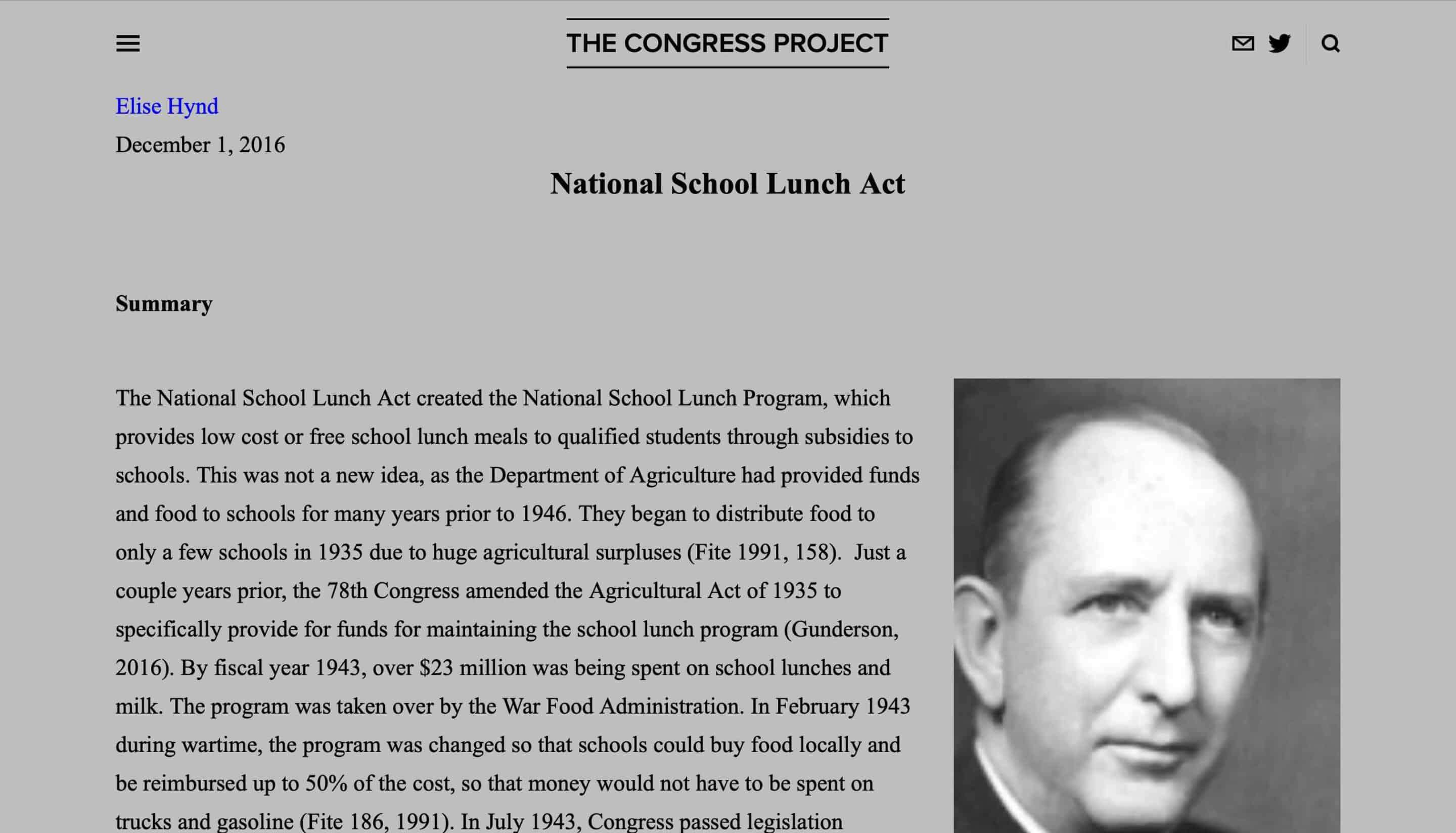
National School Lunch Act
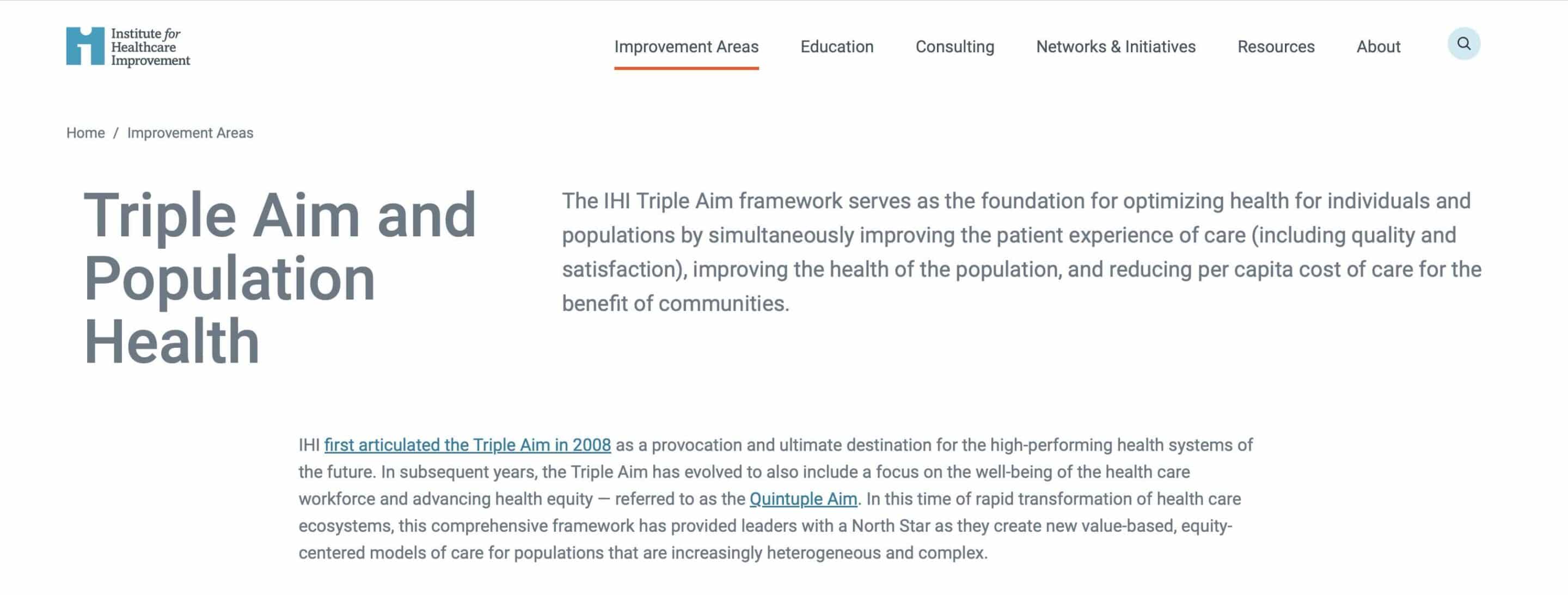
Triple Aim and Population Health
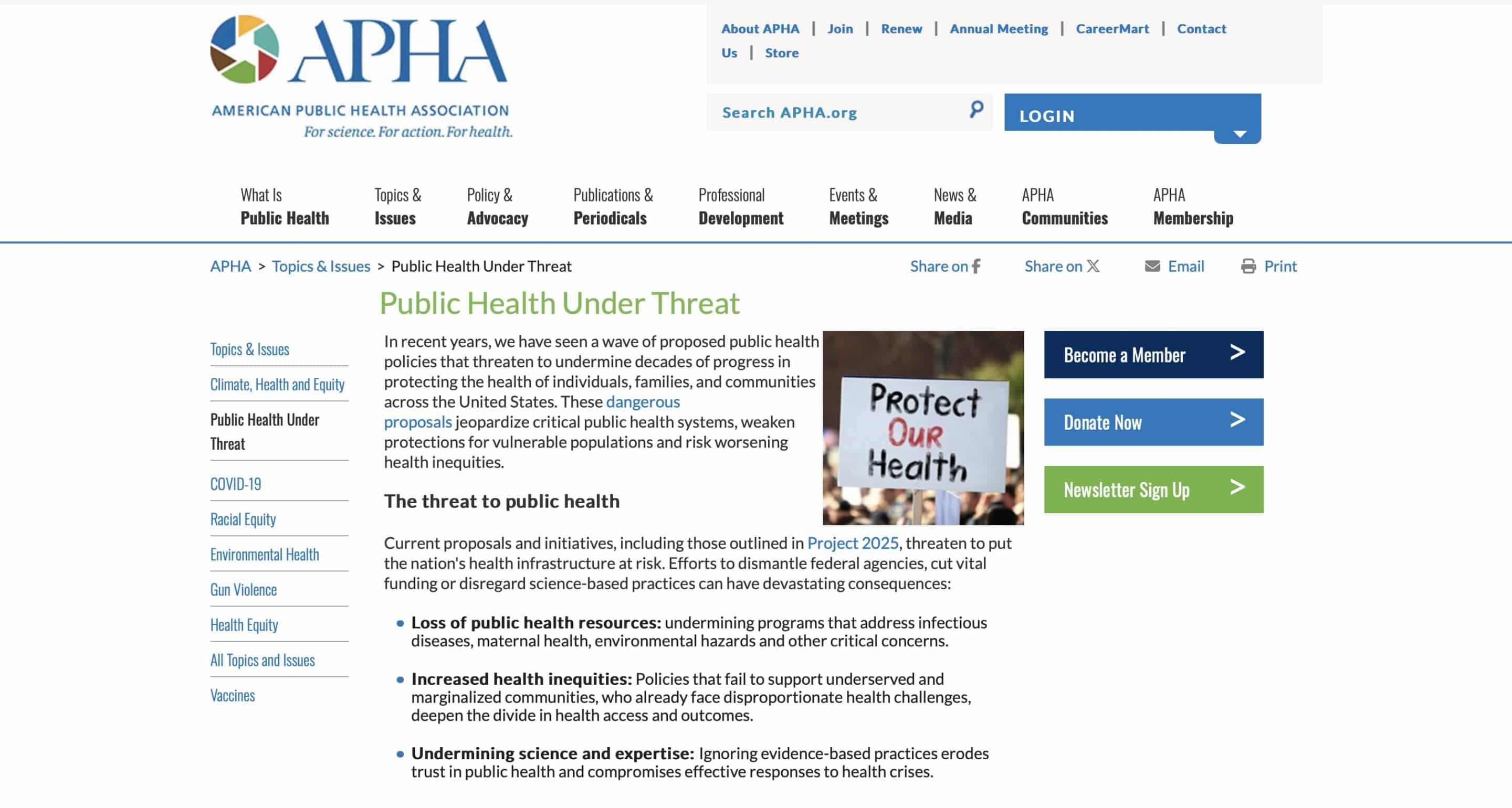
American Public Health Association: Public Health Under Threat
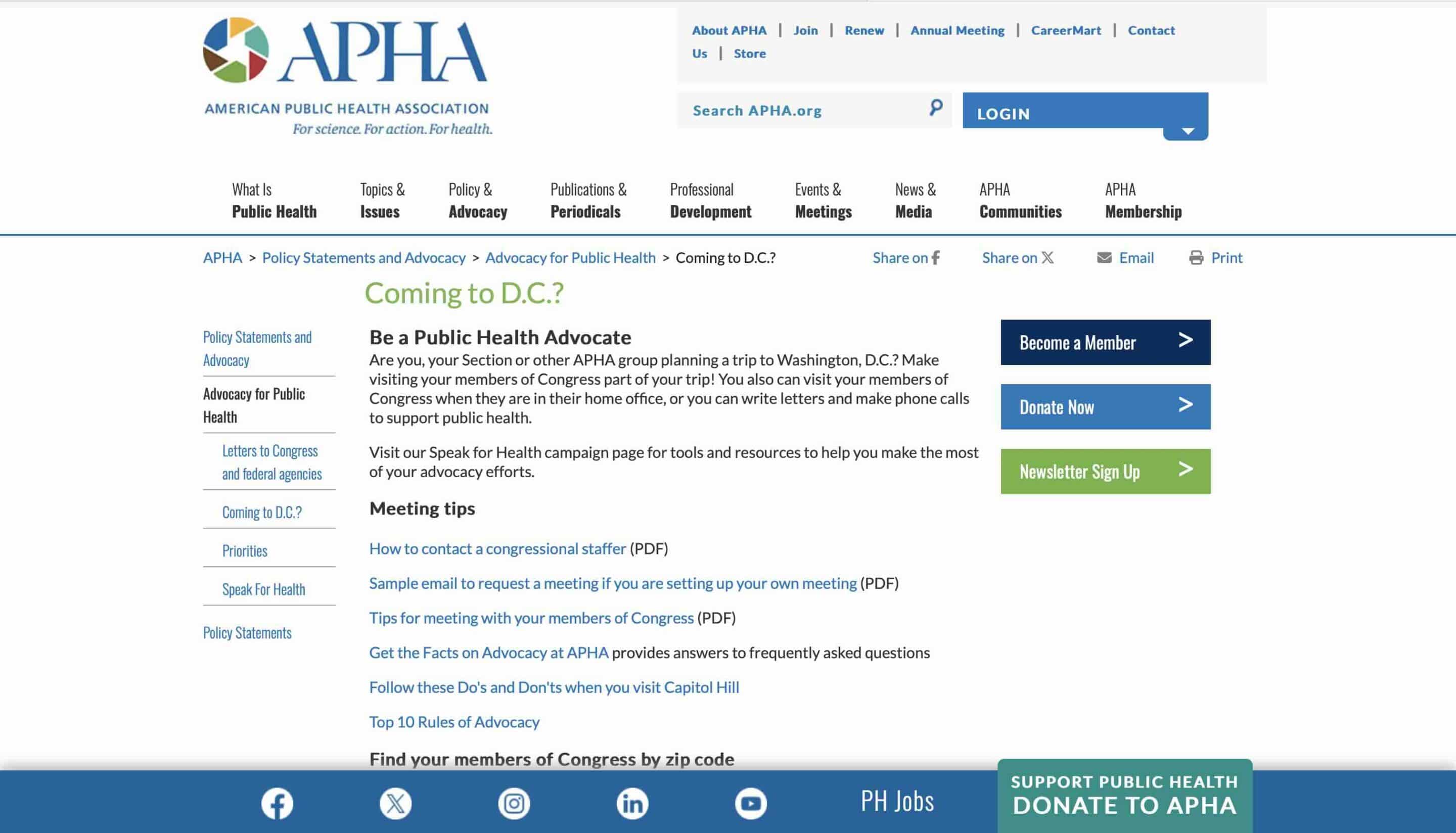
Coming to D.C.?
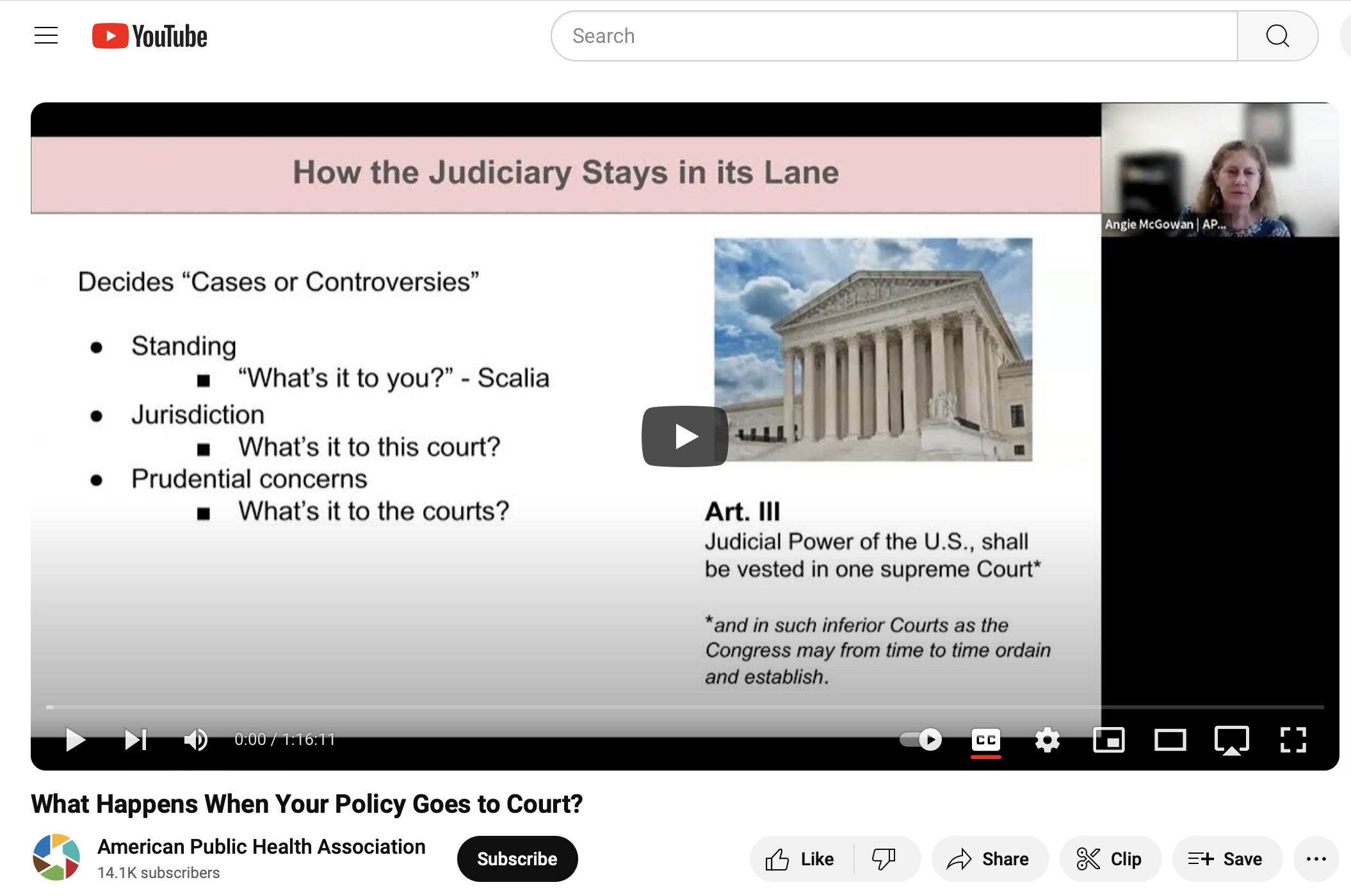
What Happens When Your Policy Goes to Court?
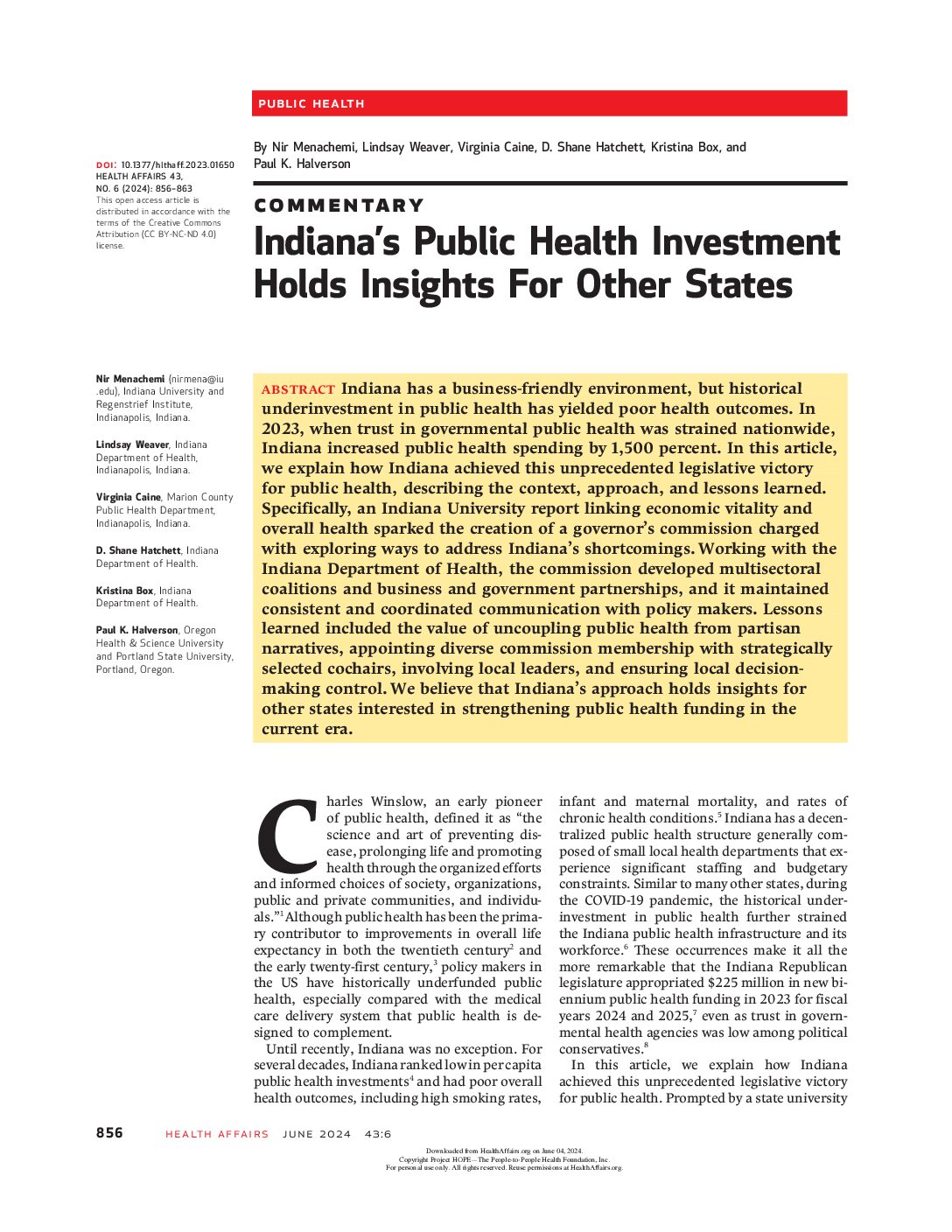
Indiana’s Public Health Investment Holds Insights For Other States

Public Health Emergency Law Online Training

Modernizing Public Health Emergency Powers Laws — Again
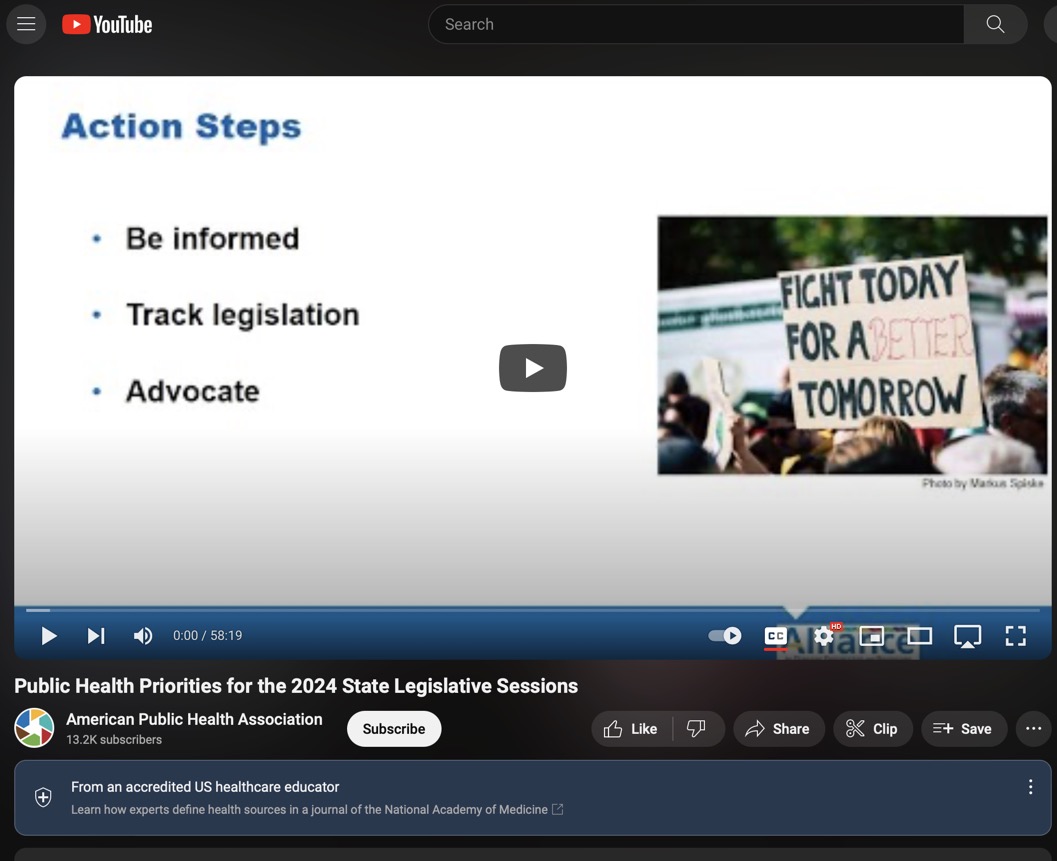
Public Health Priorities for the 2024 State Legislative Sessions
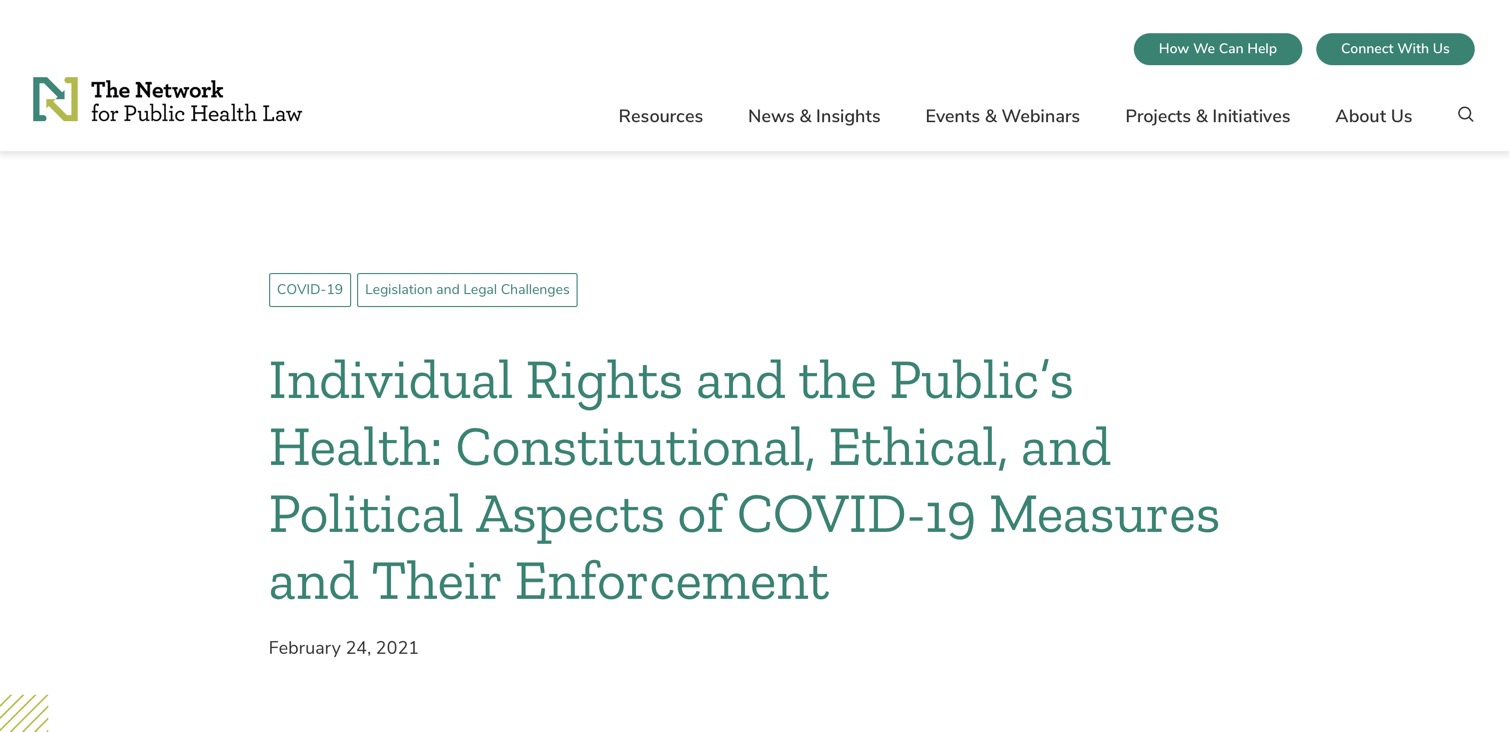
Individual Rights and the Public’s Health: Constitutional, Ethical, and Political Aspects of COVID-19 Measures and Their Enforcement
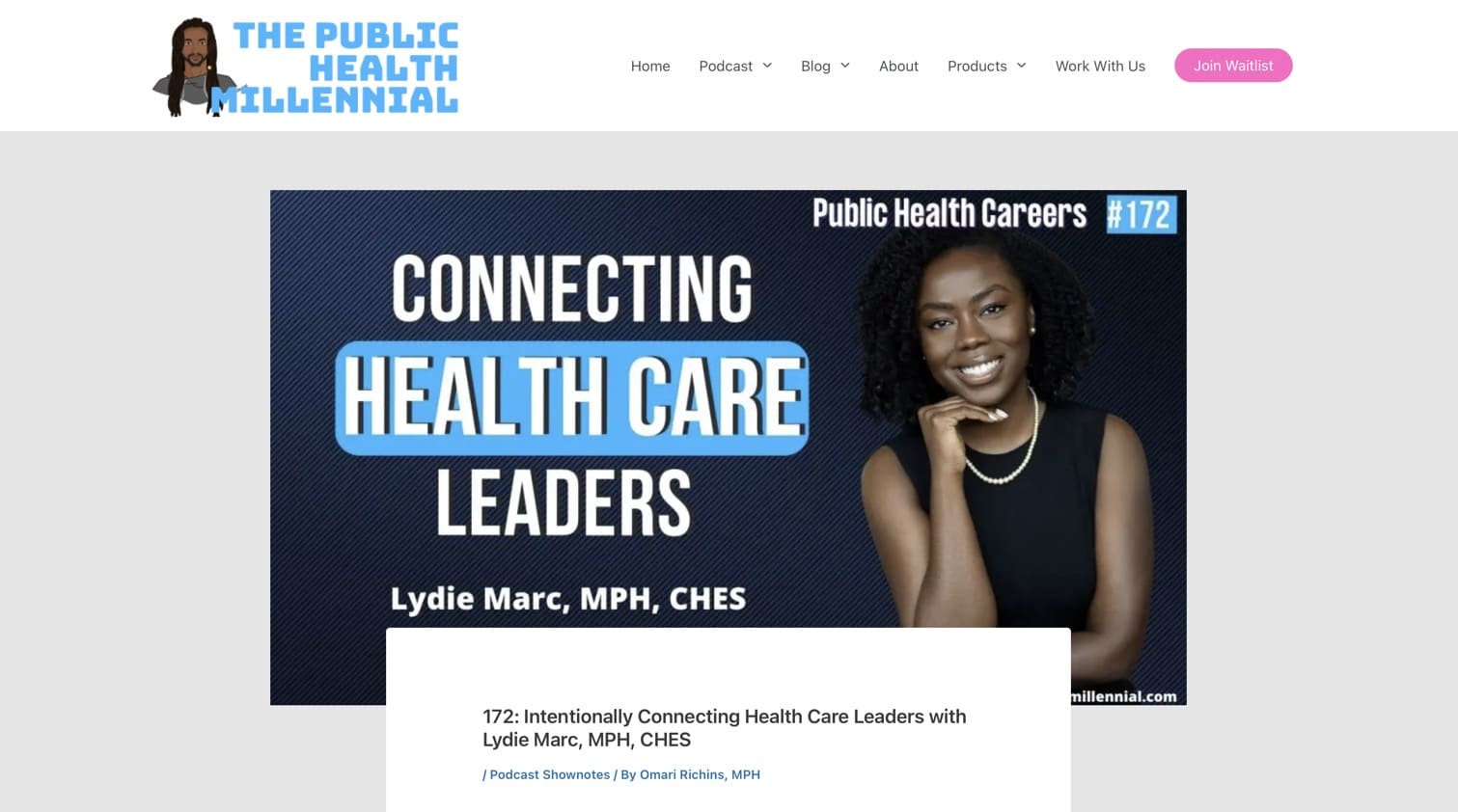
172: Intentionally Connecting Health Care Leaders with Lydie Marc, MPH, CHES
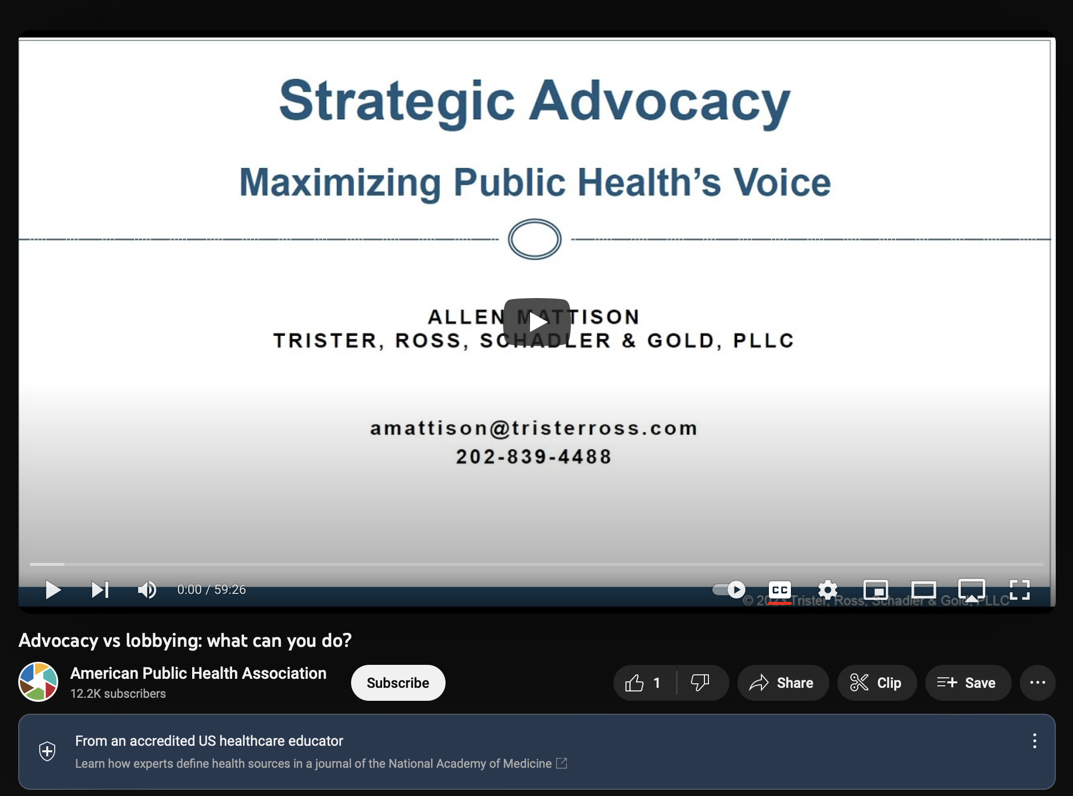
Advocacy vs Lobbying: What Can You Do?

Trends in US State Public Health Emergency Laws, 2021–2022

Regulating Public Health Measures

Public Health Preemption

State Limits on Enforcement of Federal Law

Strengthening Public Health

Reallocation of Public Health Authority

Public Health Authority Limits
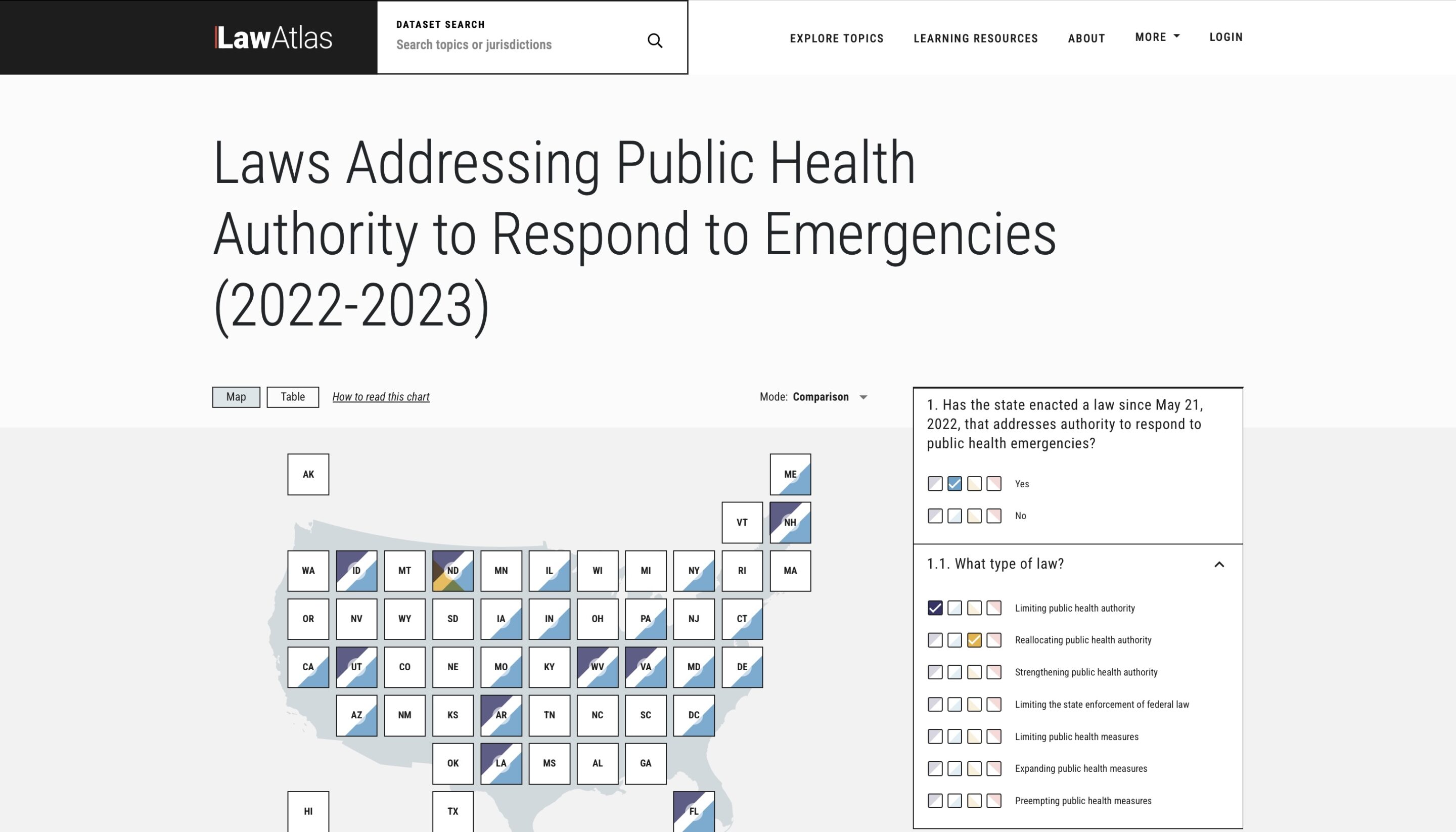
Laws Addressing Public Health Authority to Respond to Emergencies

FrameWorks: Framing the Foundation of Community Health

Advocacy for Public Health

Connecting the Dots: How to Message the Abuse of State Preemption

Building Your Advocacy Toolbox: Advocacy vs. Lobbying

State Legislation Addressing Public Health Emergency Authority

‘It’s a Tsunami’: Legal Challenges Threatening Public Health Policy

Becoming Better Messengers

FrameWorks: Government

The Collaborative on Media and Messaging: Focus Areas

FrameWorks: Human Services

What is Public Health Authority FAQ

FrameWorks: Evidence-Based Policymaking

Public Health Advocacy: The Basics

Making the Case for Public Health

The Public Health Communications Collaborative: Webinars

State Laws Limiting Public Health Protections: Hazardous for Our Health

Sentinel Surveillance of Emerging Laws Limiting Public Health Emergency Orders

Connecting the Dots: How to Message the Abuse of State Preemption, Audience-Specific Message Modules

2022 End-of-Session Report: ‘Undermining Democracy’

Campaign Toolkits: Preemption

Community Health Partnerships: Tools and Information for Development and Support

Fundamentals of Preemption

Preemption of Public Health Authority: Communication Toolkit for Organizers

Help Ensure That Public Health Professionals Can Continue to Protect Community Well-Being

State Action on Coronavirus (COVID-19)

Legislators Introduced More Than 1,500 Bills To Change the Authority of State and Local Health Agencies and Executive Officers During 2021 and 2022 Legislative Sessions

Act for Public Health

How To Counter Preemption Laws That Can Undermine Health Equity

Championing Public Health Amid Legal and Legislative Threats: Framing and Language Recommendations

Communications Tool: Building Bridges

Answers to Tough Questions About Public Health

Fighting for Public Health: Findings, Opportunities, and Next Steps from a Feasibility Study to Strengthen Public Health Advocacy

Summit 3 Accelerating Action Report: Strengthening Public Health Law, Governance and Finance to Support a Modern System

Preemption and Policymaking in Public Health Law: From Local to Global

Politics and Pandemic Fatigue Doom California’s Covid Vaccine Mandates

Isolation, Quarantine, and Public Health Authority Beyond the Pandemic

50 State Survey: Summary of Enacted Laws and Pending Bills Limiting Public Health Authority: The Second Wave

Summit Emphasizes Need for Vision That Improves Health for All Through Governance, Law and Finance

Keeping our Communities Safe and Thriving: The Role of Public Health

New: Issue-Specific Preemption Guide

Preemption: Connecting Preemption, Public Health and Equity

Sentinel Surveillance of Emerging Laws Limiting Public Health Emergency Orders

ASTHO Unveils Top 10 Public Health State Policy Issues to Watch in 2022

Links to Additional Public Health Authority Resources

COVID-19 Policy Playbook II: Legal Recommendations for a Safer, More Equitable Future

Courts Considering Challenges to States Blocking School Mask Requirements

Public Health Law After COVID-19

We Stand With Public Health: A Call to Action

COVID-19 — The Law and Limits of Quarantine

Legal Protections for Public Health Officials

Variation Among Public Health Interventions in Initial Efforts to Prevent and Control the Spread of COVID-19 in the 50 States, 29 Big Cities, and the District of Columbia

State Public Health Authorities Face COVID-19 Legal Challenges

State Action on Coronavirus

Advancing Children’s Health: Promoting COVID-19 Vaccination and Mitigation Measures

Preemption and Public Health

Preemption

Bonus Training: Preemption

Policy Playbook For COVID-19 and Beyond

An Equity-First Approach To Assessing Preemption

Addressing Health Equity In The New Preemption Era

Assessing and Addressing Preemption

Legal Authority For Local Health Officers’ and Local Governments’ Responses To COVID-19 In California

Isolation and Quarantine

Public Health Law 101: A Foundational Course For Public Health Practitioners

Public Health Threats and the US Constitution: What Responders Need To Know About Equity, Law, and Public Health Authority

State And Local Health Department Governance Classification Map

Legal Preparedness Series

Emergency Authority and Immunity Toolkit

Current Emergencies

Public Health and Information Sharing Toolkit

Bulletin: Civil Rights Protections Prohibiting Race, Color and National Origin Discrimination During COVID‐19

COVID-19 Emergency Legal Preparedness Primer

Legal And Regulatory Framework For Emergency Public Health Medical Response
Medicaid Emergency Authority Tracker: Approved State Actions To Address COVID-19

State’S COVID-19 Public Health Emergency Declarations And Mask Requirements

Training And Educational Resources

Individual Rights And The Public’s Health: Constitutional, Ethical, And Political Aspects Of COVID-19 Measures And Their Enforcement

Two Centuries of Law Guide Legal Approach to Modern Pandemic

Telehealth In The Time Of COVID-19

Emergency Situations: Preparedness, Planning, and Response

Natural Disasters and COVID-19: Preparedness Information for Specific Groups

Public Health Emergency Declarations

Legal Authority Of The Secretary

COVID-19: Disaster Preparedness And Vulnerable Population: A Workshop Series

COVID-19: Data Sharing For Public Health Surveillance, Investigation And Intervention

Public Health Under Threat: An Examination Of State Laws Protecting Public Health Officials From Harassment

The Abc’s Of Administrative Law In Public Health Practice

Ensuring Changes In Emergency Powers And Public Health Authority Will Protect Health

Proposed Limits On Public Health Authority: Dangerous For Public Health

Public Health Strategy And The Police Powers Of The State

Law And Public Health Emergency Preparedness And Response-Lessons From The COVID-19 Pandemic, Report Snapshot

Proposed Limits On Public Health Authority: Dangerous For Public Health

Surveys Of Trust In The U.S. Health Care System

How Have States Used Medicaid Emergency Authorities During COVID-19 And What Can We Learn?

The Role of the Police Power in 21st Century Public Health

US Emergency Legal Responses To Novel Coronavirus: Balancing Public Health And Civil Liberties

Public Health COVID-19 Impact Assessment: Lessons Learned And Compelling Needs

Trust in Public Health Is Essential Amid the COVID-19 Pandemic

Building Public Trust: A Response To COVID-19 Vaccine Hesitancy Predicament

Legal Resource Guide

Rural Public Health Agencies

State And Local Public Health: An Overview Of Regulatory Authority

What Is Public Health Law?

Coronavirus Emergency Management Best Practices

Public Health Law News

Virtual Resource Center For Public Health Emergency Preparedness

Emergency Use Authorization

Topic Collection: COVID-19 Legal/Regulatory/Authorities Resources

The Governmental Public Health Infrastructure

The Future of the Public’s Health in the 21st Century

Biden Administration Promises Predictability On Future Extensions Of The Public Health Emergency

Pandemic Highlights The Barrier Represented By The Public Health Regulatory Structure

Pandemic Backlash Jeopardizes Public Health Powers, Leaders

Public Health Regulations

Why Public Health Faces A Crisis Across The U.S.

New State Laws Hamstring Public Health Officials

COVID-19 Response: Public Health In Action

The Importance of Crisis Communications in Public Health

COVID-19 APHA in the News

What Is the Scope of Public Health Authority
Communications Toolkit for COVID Data Tracker

Webinar: Public Health Communications Collaborative, Oct. 1, 2020

Messaging Resources

Responding to COVID-19: A Science-Based Approach
Related Topics
Building Trust
Building trust in COVID-19 vaccination and other public health interventions is fundamental to the work of public health and efforts to end the COVID-19 pandemic. We can build trust by combating misinformation, supporting trusted messengers and networks, improving our trustworthiness, and deepening relationships that engender trust over time. Building trust between public health and communities facilitates acceptance of public health interventions and can cultivate an equitable COVID-19 response now and conditions for well-being in the future.
